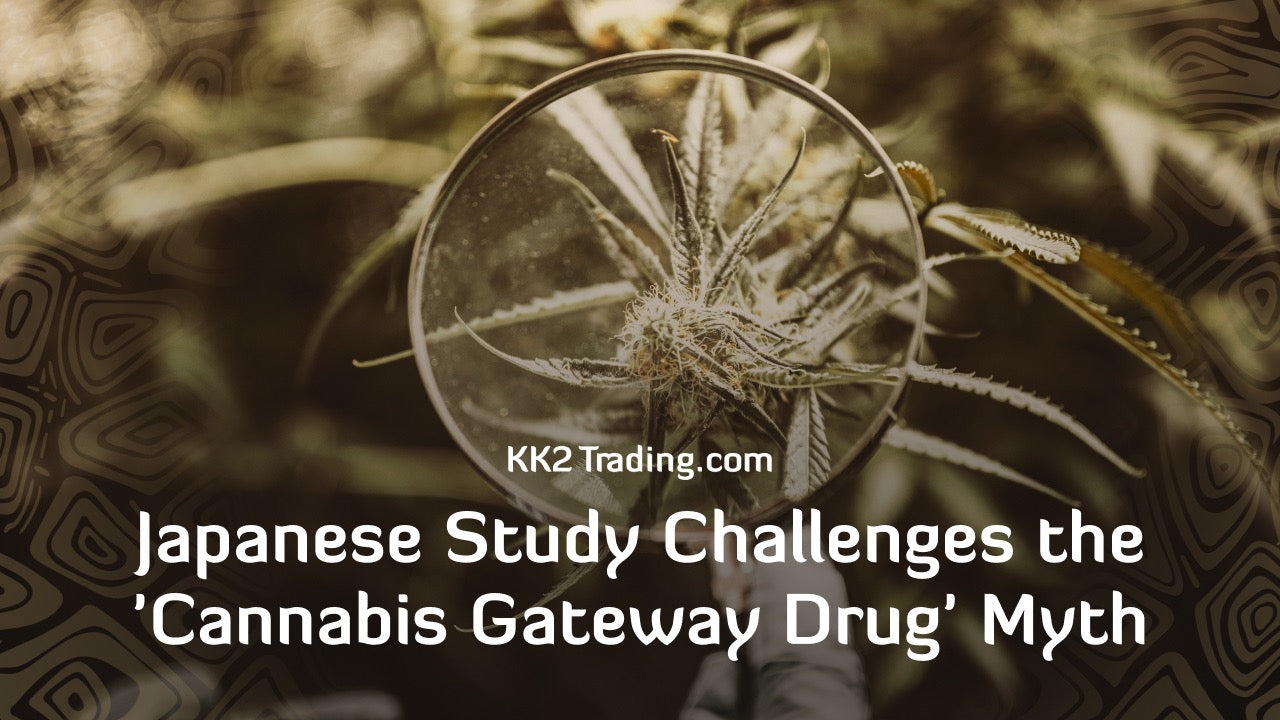
Few anti-cannabis arguments have persisted as long—or been repeated as often—as the idea that cannabis use inevitably leads to the consumption of harder, more dangerous substances.
Known as the “gateway drug” theory, this claim has roots in the Reefer Madness era and continues to influence drug policy discussions around the world, despite growing evidence to the contrary.
A recent study conducted in Japan has now added to the growing body of scientific literature refuting the gateway hypothesis, offering new data from a cultural and legal context where cannabis remains heavily stigmatized.
Groundbreaking Research from Japan
Researchers from several Japanese academic and public health institutions published their findings in Neuropsychopharmacology Reports after analyzing results from a nationwide anonymous online survey conducted in January 2021. The survey collected detailed information on demographics, substance use history, psychiatric background, and criminal records from 3,900 respondents who reported lifetime cannabis use.
To assess progression patterns, the team used a Sankey diagram and calculated odds ratios for the use of other substances following cannabis consumption.
What the Data Reveals
The results were clear:
-
Cannabis was typically the third substance used, following tobacco and alcohol.
-
Odds of subsequent substance use after cannabis:
-
Alcohol: 1.25
-
Tobacco: 0.77
-
Methamphetamine: 0.08
-
Other illicit drugs: 0.78
Nearly half of the respondents who reported cannabis as their third drug did not go on to use any additional substances, effectively debunking the idea that cannabis inevitably leads to further drug experimentation.
“These findings challenge the gateway hypothesis in the Japanese context,” the authors wrote. “Shared vulnerabilities and strict drug policies may shape these patterns. Further research is warranted to explore the impact of legal changes on drug use behavior.”
A Global Pattern of Refutation
Japan is not alone in its scientific reassessment of the gateway theory. Similar findings have emerged from studies in North America and Europe, where legal frameworks around cannabis have been evolving rapidly. In fact, many researchers now argue that prohibitionist environments may contribute more to harmful substance use than cannabis itself by pushing users into criminalized markets where multiple substances are easily accessible.
For example, a 2016 report by the National Institute on Drug Abuse (NIDA) acknowledged that most people who use marijuana do not go on to use “harder substances,” and that social environment, mental health, and peer pressure are more likely to influence those who do.
Rethinking Cannabis Policy Through Evidence
As more jurisdictions around the world rethink their cannabis laws, it is crucial that these decisions are based on science—not outdated rhetoric. The Japanese study is a timely reminder of the importance of separating myth from evidence in policy debates.
For further context on how global cannabis policy is evolving, particularly in countries where scientific evidence is starting to outweigh decades of stigma, read our recent article on Slovenia’s new adult-use cannabis policy initiative.
Why Growshops Choose KK2 Trading
- Up-to-date regulatory insights across Europe and the U.S.
- High-quality products aligned with emerging compliance frameworks
- Tailored support for your expansion into new legal markets
Let KK2 Trading be your trusted partner in this evolving industry. Get in touch today to learn more about how we support growshops across Europe.



